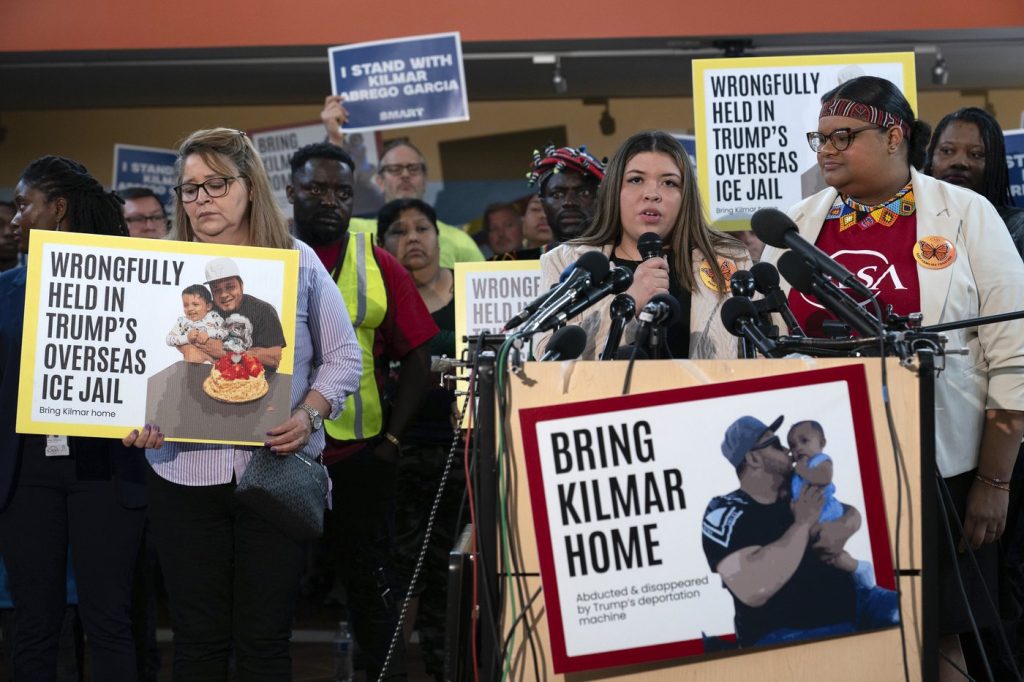A federal judge ruled that the Trump administration lacks the authority to facilitate the return of Kilmar Abrego Garcia, a Maryland man mistakenly deported to an El Salvador prison known for human rights abuses. Judge Paula Xinis ordered the administration to ensure Abrego Garcia's return by late Monday night, following a request from his attorney, Simon Sandoval-Moshenberg. The Justice Department has since requested an appeals court to suspend this ruling, arguing that a court cannot compel the Executive Branch to engage with a foreign government in a specific manner.
Abrego Garcia, a 29-year-old Salvadoran national, was arrested in Maryland and deported last month despite having been granted protections from deportation by an immigration judge in 2019. He had been living legally in the U.S. and possessed a permit from the Department of Homeland Security (DHS) to work. Critics have expressed outrage over what has been characterized by the White House as an "administrative error," which raises broader concerns about the deportation of noncitizens who have received permission to remain in the country.
During the court session, supporters of Abrego Garcia gathered at the Greenbelt, Maryland, federal courthouse. Applause erupted in the courtroom following Judge Xinis's ruling. The judge emphasized that there was no legal basis for the young man's detention or his removal to El Salvador. Abrego Garcia faces potential persecution in El Salvador due to threats from local gangs, which he fled in 2011. His attorney has stated that despite the government's acknowledgment of its mistakes, there have been no substantial efforts to rectify the situation.
The White House has maintained that Abrego Garcia is an MS-13 gang member, a claim that his legal team contests, asserting there is no evidence to support this allegation. The Justice Department's filing argues that they cannot control Abrego Garcia's situation, suggesting that compelling the government to act in this regard would be akin to trying to mandate international relations in other conflicts, such as the war in Ukraine or the situation of hostages in Gaza. They contend that the injunction demanding a foreign government to return an individual within a tight timeframe lacks any grounding in American law.
This ongoing case illustrates a complex intersection of immigration law, executive authority, and human rights, drawing significant public and legal attention. As the appeals court awaits a response from Abrego Garcia's attorneys, the implications of this ruling extend beyond his individual circumstances to potentially influence larger policy and judicial frameworks surrounding immigration enforcement.










